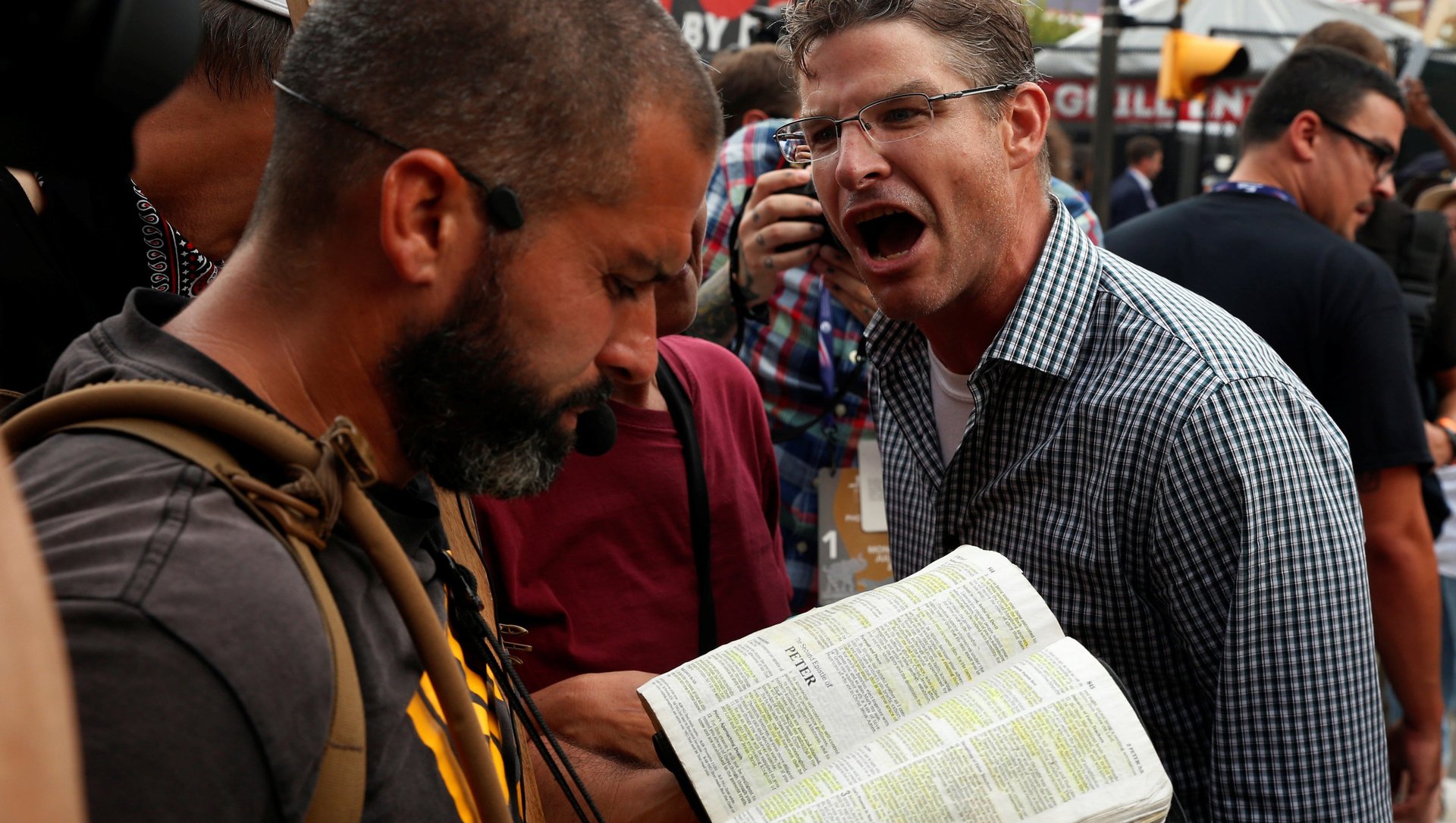One in five US college students says it’s acceptable to use violence against an “offensive” speaker
Ben Shapiro tried to give a speech at the University of California-Berkeley last week; the school met the conservative radio host—predictably enough—with raging protest.


Ben Shapiro tried to give a speech at the University of California-Berkeley last week; the school met the conservative radio host—predictably enough—with raging protest.
It’s nothing new. In the last several months, American universities have been shaken by a flurry of public, and often violent, student protests against controversial speakers coming to campus, from Milo Yiannopoulos to Richard Spencer to Charles Murray, all of whom are recognized as provocative conservatives with contentious opinions. US colleges have long had a liberal bent to them. What is striking, though, is how far students of that majority political view are willing to go nowadays to protect it, especially in the wake of Donald Trump’s election.
A Brookings Institution report this week, pulling data from a survey of 1,500 undergraduates at four-year universities across 49 states, found that 19% of students agree with the following statement:
A student group opposed to the speaker uses violence to prevent the speaker from speaking. Do you agree or disagree that the student group’s actions are acceptable?
And 44% replied “no” to the following:
Does the First Amendment protect “hate speech”?
(Those 44% are wrong. ”Hate speech,” with some caveats, is legally protected under the US constitution.)
The full set of questions and responses reveals a telling divide on university campuses, and a fairly ironic one, at that: Though college students by and large want their schools to be bastions of free speech and free thought, many of them also do not believe “offensive” or “hurtful” comments or speakers have any place within that ideology. John Villasenor, a public policy professor and the author of the report, remarked in his conclusions that “a majority of students appear to want an environment that shields them from being exposed to views they might find offensive.”
His suggestions? That pre-college educators—i.e. middle school and high school systems—give much greater attention to the First Amendment, and to constitutional principles in general. “I would hope that we can do a better job at convincing current and future college students that the best way to respond to offensive speech is with vigorous debate, or peaceful protest,” Villasenor wrote.
Until then, we’re only going to see more of the same. Middlebury College, the school that hosted Charles Murray, just announced last week that it will cancel events in the future that pose security risks—the majority of which will likely be brought by students themselves.